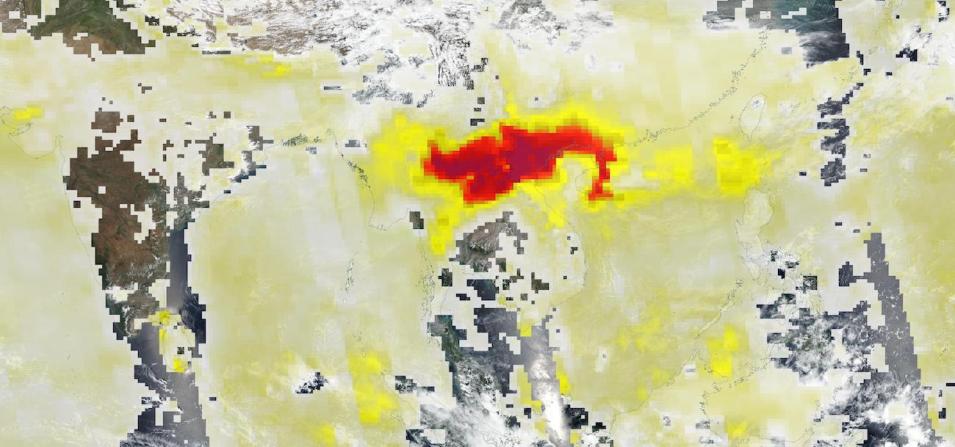Image of high Aerosol Index due to agricultural burning over the Southeast Asian countries of Laos and Vietnam on March 27, 2023. The base true-color corrected reflectance image was acquired by the Visible Infrared Imaging Radiometer Suite (VIIRS) aboard the joint NASA/NOAA Suomi National Polar-orbiting Partnership (Suomi NPP) satellite.
Overlaid on the base image is the Aerosol Index layer from the Ozone Mapping and Profiler Suite (OMPS) instrument. This layer indicates the presence of ultraviolet (UV)-absorbing particles in the air (aerosols) such as desert dust and soot particles in the atmosphere; it is related to both the thickness of the aerosol layer located in the atmosphere and to the height of the layer.
The Aerosol Index is a unitless value that ranges from < 0 to >= 5, where 5 (shown in dark red) indicates heavy concentrations of aerosols that could reduce visibility or impact human health, such as dust storms or smoke in the lower troposphere (1-3 km above Earth's surface) from biomass burning. View a comparison image of aerosol index and the fires and thermal anomalies layer in Worldview.
Visit Worldview to visualize near real-time imagery from NASA's EOSDIS, and check out more Worldview weekly images in our archive.
